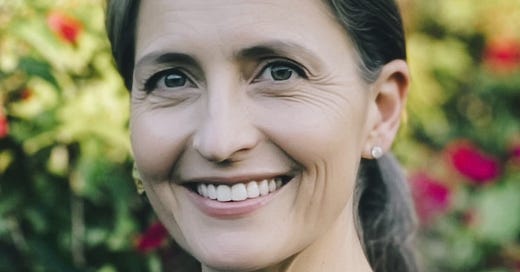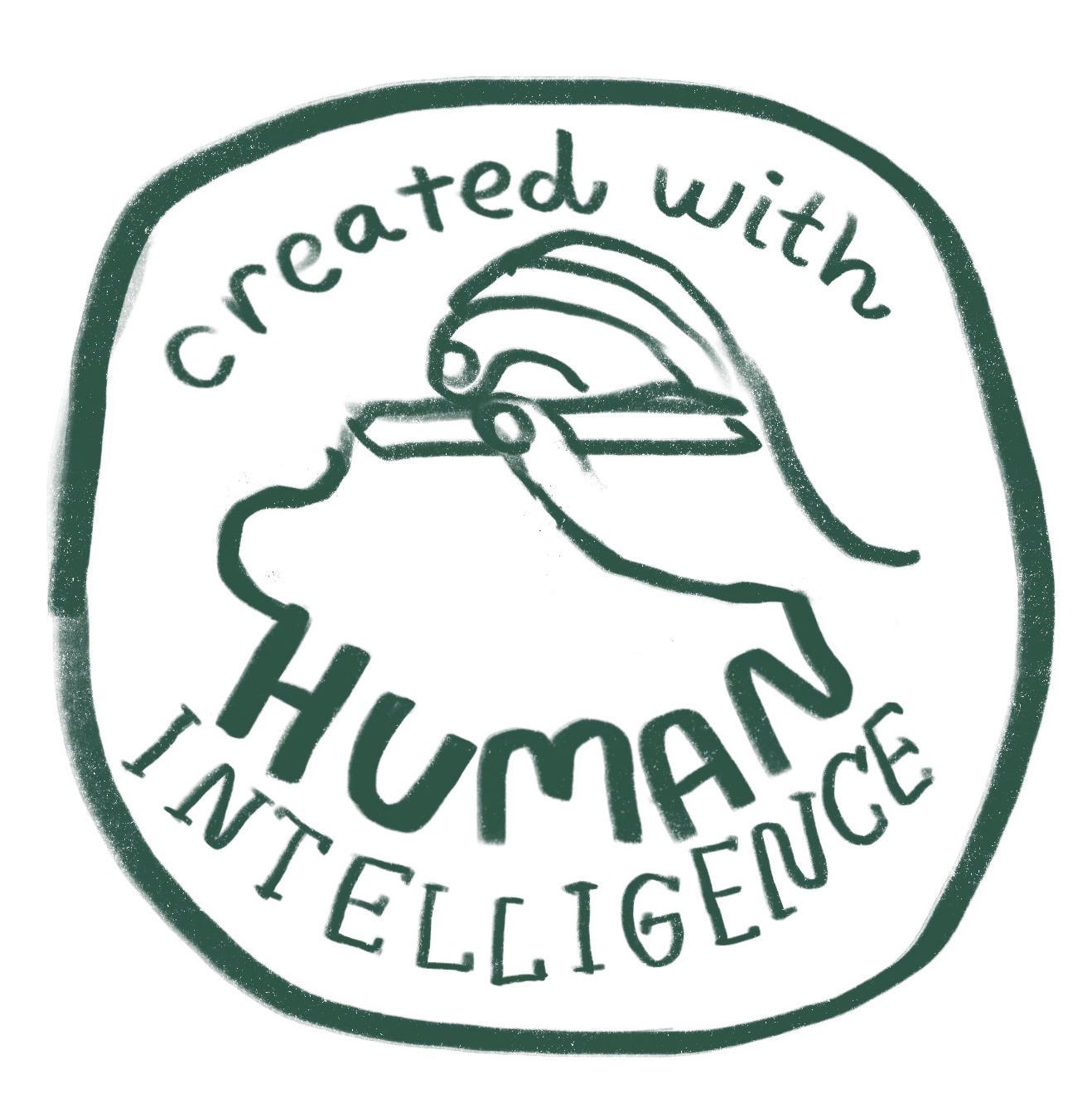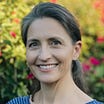Exploring Life and Literature
Dear friends,
It has been a few months since I have shared my interview series with you. However, I am very excited about today’s interview with
. Maria loves to write, workout, drink tea with a good book, and indulge in dark chocolate. She is a lover of travel believing that a change of scenery offers a new lens through which to view her life. Likewise, craving adventure in life or on the page, she loves reading and writing stories for their transportive effect.Maria and I became acquainted early in my writing journey. We have enjoyed reading and supporting each other’s work throughout this past year. It is a pleasure to introduce her to my readers.
Maria, can you tell us where you are from and where you live now?
As for where I’m from originally, that’s always a funny question for me; I grew up as an American expat in Saudi Arabia, so “home” was never my passport country. I lived between the Middle East and boarding school in the UK until I was 18, and it wasn’t until I went to college that I finally lived in the U.S. Since then, I’ve lived in several states, but California has been home for about a decade. One thing that sometimes surprises people (along with where I grew up) is that I went to boarding school in the UK between the ages of 13 and 18. The boarding school experience and British culture left such an impression on me that I have drawn on both in my novel. One of my latest posts, “London Edition,” is about a recent trip to the UK and its role in my writing process.
Would you share with us how reading came into your life and how your reading habits have changed over the years?
I don’t remember a time in my life when I didn’t read for pleasure, except maybe in college and grad school when most of my reading was coursework. But I always indulged over the summer. This makes me laugh a little, but as a college student, one of the things I most looked forward to upon graduation was more time to read what I wanted. Of all the things to imagine for one’s future! I didn’t imagine myself as a writer then, but I knew I needed stories in my life.
Now, I’m a wife and mother of a fifth grader and two high school students; life feels very busy almost all of the time. Audiobooks are a big part of my reading life, partly because I’m a somewhat slow reader and also because I can listen as I go about much of the work of running a household. In addition, I always have a different, physical book at my bedside to read in the evenings.
I also belong to two book clubs which I love for several reasons: I read books I might not choose myself, I have deadlines, and the conversations often reveal perspectives I may not have encountered otherwise. I love how stories teach us about ourselves and each other.
Finally, reading is part of my work. Any writer knows that to write, one must read.
I would love for you to share a book that influenced you and how it did so.
The Midnight Library by Matt Haig comes to mind. That book, for me, was the type where I was utterly immersed in Nora’s alternate realities, hungry to turn the page. I felt like the author had written the book just for me, and I thought about that story for a long time after finishing it. This idea that our choices can shape very different possible paths is one I love to ponder, a theme that shapes my own story ideas. I didn’t realize it then, but The Midnight Library showed me how important it is to know ourselves as readers, to know what kind of stories we love.
What are your thoughts on the importance of stories culturally?
Stories are everywhere! They’ve been around as long as we could tell them. I don’t think we could escape them if we tried. From the board books we read to infants, our favorite YAs in adolescence and the classics assigned in high school; the latest romance on the New Releases shelf at the library, the juicy gossip shared in the Trader Joe’s parking lot, and the anecdotes used in a wedding toast or graduation speech; even our favorite movies and miniseries. Stories are everywhere, and we all have one.
In a world where the demands on our attention are constant, where it is easy to feel distracted and perhaps unfulfilled by all the busyness that fills our lives, stories never, ever get old. The possibility for pure escape in a text does not diminish. Most stories aren’t for everyone, but there are more out there that are perfect for each of us than we could ever get through in a lifetime.
We need stories, even if we’ve never given the matter much thought. There are many reasons why stories matter, but the one I return to over and over, and the one that fuels my need to write, is that stories help us understand our world and each other. Who, among us, doesn’t want to feel understood? The best stories translate individual experiences to universal understanding.
What genres do you prefer to read?
My personal go-tos are contemporary fiction and memoir. I especially love stories about families, relationships, and the choices that shape our lives. As a midlifer, a protagonist wrestling through relatable issues and a similar stage of life is probably a good reading match, but I love all sorts of books. I don’t dislike happy endings, but I do enjoy a story that presses on and reveals complex realities of what it is to be human in this world.
Also, I have always loved ghost stories. I make a point of reading/listening to them every October. This year, I chose Ghost Stories: Stephen Fry’s Definitive Collection on Audible. In general, I think I love stories that leave me wondering what we don’t know.
What book do you think everyone should read in their lifetime and why?
So many! Before I answer, I will say that there are books I’ve loved and considered revelatory and life-changing, only to find they barely resonate, or resonate completely differently, with someone else. I do, however, think books can be life-changing when we know ourselves as readers. What kinds of stories do you enjoy? What themes do you connect with? Why do you read and what captures your attention? So much of our experience with a book is how we arrive at the text.
That said, one of my favorites of all time is Charlotte’s Web by E.B. White. I’ve read it so many times—as a young girl, to my boys, and to many students in my teaching days. The author’s love of the natural world is evident, and especially prescient with the environmental challenges we face today. Themes of friendship, loyalty, sacrifice, death, and the cycle of life resonate with readers of all ages, just as our own lives are woven with great joys and tremendous sorrows. This sweet story of a pig and a spider touches the core of what it means to be human. It makes me cry every time.
Tell us about an underappreciated novel that you love.
I don’t know if it is underappreciated as much as I enjoy boosting a debut novel that I loved. One Moment by Becky Hunter is a wonderful read. It’s a story about friendship, loss, the choices we make, all set in London. And it has a ghost! Absolutely my kind of book. Becky Hunter’s second novel, Meet Me When My Heart Stops came out this year and I’m looking forward to reading it.
How do you pick the next book you want to read?
My book groups provide a steady stream of book selection, as mentioned, but I often find an author’s inspiration for a story, or their journey to writing, influences my choices. For example, I read that Barbara Kingsolver finally understood how to write Demon Copperhead after a visit from Dickens himself. How cool is that? As an aspiring novelist and student at The Novelry, as well as a writer here on Substack, I am fairly immersed in the world of learning how to write and publish novels, which means a lot of talk about what to read next. I can never resist a new release by my favorite authors, but I have a special place in my heart for debut novelists as well. My TBR list is always longer than I can manage, but I don’t consider that a problem.
What book are you reading right now?
In the last several weeks, I finished Kate Moreton’s Homecoming and Liz Moore’s God of the Woods, both divine and incredible feats of storytelling. Right now I’m reading Liane Moriarty’s new release, Here One Moment and listening to Percival Everett’s James, which just won the National Book Award for fiction.
Is there anything else about your reading life you would like to share with us?
If you enjoy audiobooks, I recommend engaging with the some of the classics you may have left behind in school. Older texts can feel intimidating to some readers, but audiobooks open a different access point. Give it a try! I recently listened to Stephen Fry narrate Washington Irving’s The Legend of Sleepy of Hollow, and it’s terrifying in the best way. Similarly, I listened to Charles Dickens’ A Christmas Carol a few Decembers ago and it was equally wonderful, and perhaps just as spooky.
How did you decide to start writing?
I haven’t always been a writer. In my twenties, I taught elementary school and was sure I’d never want to do anything else. When I became a mother, I stayed home with my boys, who are now 17, 15, and 10, and returned to teaching shortly before the pandemic. About the same time, I had also begun to imagine writing a book one day, unsure if it would be for children or adults. I couldn’t shake the idea, so eventually I signed up for an online creative writing course, thinking I’d work on it in the evenings. Fast forward to March 2020, and I found myself at home with three school-age children, a rapidly changing job situation, and more time to write. By the time schools opened again, I had completed multiple writing courses and didn’t want to stop. That’s when I decided to pursue writing more seriously.
What do you consider the most difficult part of the writing process?
I enjoy editing, but find it very difficult to stop. There will always be something to change or improve; I find it difficult to reread anything I publish for fear I’ll find something I’ve missed or want to improve. Understanding that “done” is better than “perfect” has been a challenging lesson for me, as much as I know it is necessary to sustain a writing practice.
Share with us what you have written and what you have in the works.
My first “success” as a writer was for the very first piece I ever submitted. My piece, “Holy,” won an award in the 2022 Soul-Making Keats Literary Competition memoir-vignette category, judged by the amazing Linda Joy Myers, who writes Magic of Memoir, Magic of Fiction here on Substack. I was stunned at first, and then absolutely ecstatic.
I spent most of 2022 learning how to write short stories and personal essays, and submitting my work to online publications. I had a few more acceptances, along with several rejections.
Currently, I’m writing the first draft of my first novel, and hope to have that finished in the next few months. And of course, I write here on Substack. My publication is called Dream Big, which is about finding writing in my 40s, writing my first novel, and all the moments that inspire me as I chase my author dreams and raise three kids.
Can you share with us a little about your writing process? What does your day look like when you are writing? Do you have a particular space you prefer to be in while writing?
My writing schedule always starts with a look at the week ahead on Sunday evening. Family life always feels busy, so I only write at home when my kids are asleep or when I have the house to myself. Most days, I rise early and work on my novel for about an hour before everyone wakes up. Once the house is quiet, I might work more on my manuscript and/or any other writing priorities, like meeting with my writing coach, a Substack post, or an online writing tutorial or webinar. I have a desk, but I occasionally take my work to a local coffee shop. The change of scenery is almost always a good thing.
What risks have you taken with your writing that have paid off?
I feel like every decision I’ve made in my very young writing career has been a leap of faith, mostly in the sense of “Can I actually do this?” My decision to enroll in my first creative writing class five years ago was a response to a gut feeling, my first step toward the book that had been whispering to me for a while. Now that I’ve finally landed at The Novelry and here on Substack, I have learned the writing community is full of people who want to see other writers succeed.
Also, I feel like I have been warned many times that the writing life is not for the faint of heart; it’s rife with rejection and the path to publication is difficult. Publication is wonderful, and rejections/feedback can be rough, but they’re also just part of the work that I want to do. The intrinsic reward I find in the writing itself makes my practice sustainable and, in many ways, I feel like I’m already living my writing dream.
Who do you consider to be your literary influences?
I’m still getting to know myself as a writer, so I feel like I’m trying to learn as much as I can from everything I read. As mentioned, I love an inspirational author journey and a debut novelist. Carley Fortune is a great example; she decided to write Every Summer After during a pandemic summer having never written a novel before. I admire a writer who can draw out the universal truths from circumstances we, as readers, may never experience, even the unimaginable. Miranda Cowley Heller’s The Paper Palace is one I thought about for a very long time, including the author’s bravery in handling trauma and the shocking premise. That was also a debut novel! Both of these books have dual timelines, which I enjoy. In general, the books I love often focus on relationships, families, and how choices shape our life paths.
What advice would you give to a writer working on their first book?
I am that writer, so I’ll take any of that advice! Here are two of my favorite tips.
A book won’t write itself. Schedule your work time and keep showing up. It’s the simplest advice and probably the hardest to follow.
One of my favorite Substack writers and authors, Clover Stroud, shared her top ten tips for writing a first draft. Number 8 is something to the effect of yes, we writers are pouring our souls onto the page—but also, no one is forcing us to do this. There are far harder jobs, so keep your misery in check. For anyone working on their first draft, I highly recommend reading the entire list.
Is there anything else about your writing life you would like to share with us?
We always say writing is solitary work, but community makes it feel less so. I feel very lucky to have found wonderful support and guidance here on Substack and at The Novelry, in addition to a broadening network of writer friends.
I often need to remind myself that building a writing life and becoming a novelist takes time. It can be very easy to compare myself to others who seem to be doing more or are at different stages of their careers. But there is no prescribed path, so I just keep showing up and doing the work as best I can. Even the difficult days are not wasted. It’s the journey and the destination, I’d say.
Maria is a fantastic writer and all around wonderful person. Please check out her publication Dream Big at the link below.
Beyond the Bookshelf is a reader-supported publication. If you are looking for ways to support Beyond the Bookshelf, please visit my support page and see the ways you can help continue the mission of exploring the connection between life and literature.
Until next time,












Wonderful interview!! And Maria, I absolutely loved this paragraph: "We need stories, even if we’ve never given the matter much thought. There are many reasons why stories matter, but the one I return to over and over, and the one that fuels my need to write, is that stories help us understand our world and each other. Who, among us, doesn’t want to feel understood? The best stories translate individual experiences to universal understanding." So true, and so well-articulated!
A really engaging interview! I'm looking forward to getting to know your wok better, Maria.